
Kód: 13708710
Anti-Natalism
Autor Ken Coates
The last few decades seem to have begun what has been called 'the childless revolution'. In developed countries, increasingly people are choosing not to have children. The causes of this 'revolution' are many including the beli ... celý popis
- Jazyk:
 Angličtina
Angličtina - Väzba: Brožovaná
- Počet strán: 222
Nakladateľ: First Edition Design Publishing, 2016
- Viac informácií o knihe

Mohlo by sa vám tiež páčiť
-

Better Never to Have Been
42.70 € -

I Got a Cheat Skill in Another World and Became Unrivaled in the Real World, Too, Vol. 3 LN
13.31 € -18 % -

Towards a Feminist Critical Reading of the Gospel according to Matthew
151.58 € -

Cities of Smoke and Starlight
20.58 € -

I Spit on Your Grave
22.32 € -

P.S. I Still Love You
9.41 € -24 % -

Avatar: The Last Airbender - The Promise Part 1
14.53 € -

Witchery
14.64 € -20 % -

The Commander's Daughter
12.79 € -

Dark Wood Tarot
31.95 € -3 % -

I Would Leave Me If I Could
19.76 € -9 % -

The Most Incredible True Football Stories (You Never Knew)
7.98 € -22 % -
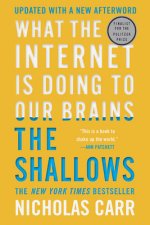
Shallows - What the Internet Is Doing to Our Brains
12.28 € -2 % -

Science of Running: Analyze Your Technique, Prevent Injury, Revolutionize Your Training
18.32 € -21 % -

Good Services
19.96 € -2 % -

Sebastiao Salgado. Gold
49.67 € -10 % -

Way You Make Me Feel
10.85 € -4 % -

Ars Goetia: Book I of the Lemegeton
8.59 € -

Magnus Chase and the Gods of Asgard Set
24.16 € -23 % -

English Grammar in Use 5th edition
30.72 € -

Paint by Sticker Kids: Unicorns & Magic
9.41 € -18 % -

Art of Assassin's Creed Odyssey
33.38 € -18 % -

People in the Trees
20.07 € -

Nightfall Coloring Book
16.28 € -13 % -

ACCA Advanced Performance Management
11.56 € -59 % -
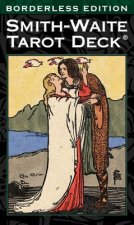
Smith-Waite Tarot Deck Borderless
19.55 € -23 % -

Call of the Night, Vol. 4
10.23 € -13 % -
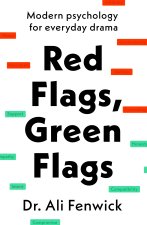
Red Flags, Green Flags
20.89 € -23 % -

Bluey: Mini Bluey
9 € -13 % -

Dai Dark Vol. 5
12.38 € -20 % -

Twisted Hate
10.13 € -16 % -

Survival in Another World with My Mistress! (Manga) Vol. 1
14.23 € -8 % -

I Got a Cheat Skill in Another World and Became Unrivaled in The Real World, Too, Vol. 1 LN
13.31 € -18 % -
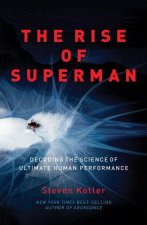
The Rise of Superman: Decoding the Science of Ultimate Human Performance
13 € -21 % -

Lonely Planet Jordan
18.73 € -18 % -

A Certain Hunger
15.66 € -19 % -

Pet Portrait Embroidery
21.29 € -18 % -

Chosen
23.04 € -4 % -

Rebuilding Milo
59.19 € -16 % -

Legendborn
8.70 € -20 % -

Of Patience And Submission To Authority: A Sermon (1684)
25.08 € -

Drawing the Head and Hands & Figure Drawing (Box Set)
67.29 € -16 % -

EMPOWERED - Ordinary People, Extraordinary Products
26.42 € -20 % -

The Trouble With Being Born
12.49 € -14 % -

Jane Eyre
3.37 € -38 % -

Permanent Record
12.28 € -23 % -

In the Dust of This Planet - Horror of Philosophy vol. 1
14.74 € -15 % -

Realityspirituality the Truth About Happiness Final
25.08 € -

Bill Frisell - An Anthology
26.93 € -5 % -

Suzuki Violin School, Vol 1: Violin Part
16.89 € -
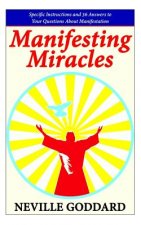
Manifesting Miracles
16.17 € -

Hedge Fund of Funds Investing - An Investor's Guide
77.63 € -3 % -

Dororo
24.78 € -6 % -

The Atlas of Tolkien's Middle-earth
19.86 € -23 % -

Lime-trees and Basswoods
208.12 € -

Slouching Towards Bethlehem
10.13 € -22 % -

4-Hour Work Week
16.79 € -23 % -

Imaginative Realism
25.80 € -17 % -

I Love You More Than Moldy Ham
11.36 € -13 % -
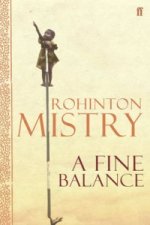
Fine Balance
10.23 € -24 % -

Ruins of Gorlan
7.98 € -24 % -

Java Concurrency in Practice
63.60 € -

Dandelion Wine
11.15 € -23 % -

The Return of the King
8.49 € -2 % -

Bury My Heart At Wounded Knee
12.28 € -23 % -

Wisdom of Insecurity
14.53 € -14 % -

Pokemon X*Y Complete Box Set
53.87 € -3 % -

Three Books of Occult Philosophy
61.55 € -18 % -

Paw Patrol 5-Minute Stories Collection (Paw Patrol)
13.51 € -17 % -

The Sex Club: Xoxo
18.43 € -

Warriors Super Edition: Hawkwing's Journey
10.44 € -23 % -

Manga in Theory and Practice
16.58 € -22 % -

Magnum Contact Sheets
45.16 € -20 % -

Man in the Brown Suit
9.72 € -12 % -

Living with a SEAL
17.81 € -14 % -

Generations
19.96 € -14 % -

The King's Deception
10.64 € -7 % -

Geotechnical Engineering Calculations and Rules of Thumb
152.71 € -

The Little Book of Hygge
14.64 € -24 % -

German All-in-One For Dummies with CD
31.44 € -

Ultimate Band Saw Box Book
42.70 € -

Von Kopf bis Fuß
10.03 € -5 % -

Питер Пэн и Венди (илл. А. Лоренте)
26.52 € -5 % -

The Trouble With Being Born
13.31 € -

Stefan Lochner
31.33 € -2 % -

VIRIDIANA - DVD LUIS BUNUEL
30.31 € -

Duden - Die deutsche Rechtschreibung
32.36 € -

Die Biene Maja (CGI), 1 DVD. Tl.8
14.74 € -

Kya Maim Choti Hum? Lu OE H?'i Srak?: Hindi-Na?vi: Children's Picture Book (Bilingual Edition)
15.05 € -

Reise durch die Welt des Flamenco
57.96 € -9 % -

10-Button-Soundbuch, Bauernhoftiere
13.51 €
Informovať o naskladnení knihy
Zadajte do formulára e-mailovú adresu a akonáhle knihu naskladníme, zašleme vám o tom správu. Postrážime všetko za vás.
Viac informácií o knihe Anti-Natalism
 Anotácia knihy
Anotácia knihy
The last few decades seem to have begun what has been called 'the childless revolution'. In developed countries, increasingly people are choosing not to have children. The causes of this 'revolution' are many including the belief that to create a new life is to subject someone unnecessarily, and without their consent, to life's many sufferings including death. This belief and its underlying philosophy is known as anti-natalism. There has been a recent resurgence of this philosophy, with David Benatar's book Better Never To Have Been (2006) as a major catalyst. Anti-natalism can be seen as part of a broader philosophy, described here as Rejectionism, which finds existence -directly or indirectly, i.e. as procreation - as deeply problematic and unacceptable. The book traces the development of this philosophy from its ancient religious roots in Hinduism (Moksha) and Buddhism (Nirvana) to its most modern articulation by the South African philosopher David Benatar. It examines the contribution to rejectionist thought by Schopenhauer and von Hartmann in the 19th century and Zapffe, a little known Norwegian thinker, in the 20th century, and most recently by Benatar. Benatar and Zapffe represent this approach most clearly as anti-natalism. The book also devotes a chapter to the literary expression of rejectionist philosophy in the works of Samuel Beckett and J.P.Sartre. In sum, far from being an esoteric doctrine rejectionism has been a major presence in human history straddling all three major cultural forms - religious, philosophical and literary. The book argues that anti-natal philosophy and its practice owe a great deal to three major developments: secularization, liberalization of social attitudes, and technological advances (contraception). Anti-natal attitudes and practice should therefore be seen as a part of 'progress' in that these developments are widening our choice of lifestyles and attitudes to existence. In sum, The book argues that anti-natalism needs to be taken seriously and considered as a legitimate view of a modern, secular civilization. Secondly, the book seeks to situate current anti-natalist thought in its historical and philosophical perspective. Finally, it argues that in order to develop anti-natalism further it needs to be institutionalized as a form rational 'philosophy of life', and more attention needs to be paid to the problems and prospect of putting this philosophy into practice. Author Bio: The author is a social scientist. After receiving a Ph.D degree from the University of London he has been a university professor. This book is a result of his long-standing interest in issues of existence and existential philosophy. Keywords: Anti-Natalism, Existence, Moksha, Nirvana, Rejectionism, Suffering, Schopenhauer, Zapffe, Benatar, Beckett.
 Parametre knihy
Parametre knihy
Zaradenie knihy Books in English Humanities Philosophy Non-Western philosophy
- Celý názov: Anti-Natalism
- Podnázov: Rejectionist Philosophy from Buddhism to Benatar
- Autor: Ken Coates
- Jazyk:
 Angličtina
Angličtina - Väzba: Brožovaná
- Počet strán: 222
- EAN: 9781506902401
- ISBN: 1506902405
- ID: 13708710
- Nakladateľ: First Edition Design Publishing
- Hmotnosť: 294 g
- Rozmery: 218 × 140 × 21 mm
- Dátum vydania: 26. July 2016
Obľúbené z iného súdka
-

ZEN and the Art of Happiness
14.94 € -

Light on Pranayama
14.43 € -23 % -

Book of Five Rings
10.95 € -4 % -

Light on Yoga
22.01 € -23 % -

Light on Yoga
22.22 € -4 % -

Kamasutra
11.15 € -23 % -

Meditations
13.82 € -16 % -

Heart of Yoga
18.94 € -9 % -

Be As You Are
12.28 € -23 % -

Freedom from the Known
12.28 € -23 % -

Hagakure - The Way of the Samurai
17.10 € -

Art of War
9.52 € -23 % -

Yoga Sutras of Patanjali
8.49 € -23 % -

Art of War
24.78 € -21 % -

Psychotherapy East and West
15.25 € -16 % -

Tree of Yoga
11.15 € -23 % -
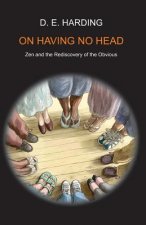
On Having No Head
17.40 € -

Nectar Of Immortality
19.25 € -5 % -

Avicenna and the Aristotelian Left
35.74 € -

Strategy and the Fat Smoker
29.90 € -4 % -

Mo Tzu
38.91 € -
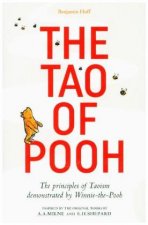
Tao of Pooh
10.13 € -22 % -

Krishnamurti'S Notebook
16.17 € -16 % -

Little Book of Ikigai
10.64 € -21 % -
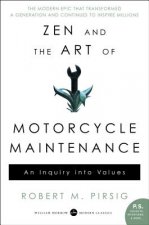
Zen and the Art of Motorcycle Maintenance
16.69 € -13 % -

Book of Five Rings
16.58 € -23 % -

Hagakure
11.67 € -18 % -
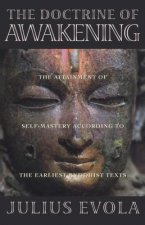
Doctrine of the Awakening
16.99 € -16 % -

Hyperobjects
26.42 € -

Bringing Yoga to Life
15.97 € -13 % -

Dancing Wu Li Masters
16.07 € -17 % -

Total Freedom
16.58 € -22 % -

Zhuangzi: The Complete Writings
42.70 € -

Heart
15.87 € -
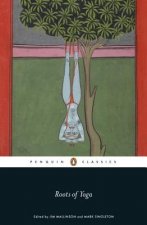
Roots of Yoga
14.43 € -23 % -

What Are You Doing With Your Life?
12.90 € -24 % -

Code of the Samurai
13.20 € -19 % -

First and Last Freedom
16.58 € -23 % -

Analects
12.69 € -6 % -

Conference of the Birds
14.43 € -9 % -

I am That
39.94 € -

Four Chinese Classics
22.01 € -16 % -

Analects
13.82 € -21 % -

Heart of Awareness
17.30 € -19 % -

108 Discourses of Guru Dev
31.03 € -
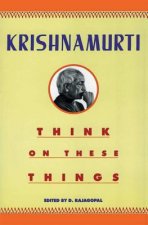
Think on These Things
14.64 € -20 % -

Lost Writings of Wu Hsin
23.96 € -

Lightning and the Sun
60.22 € -
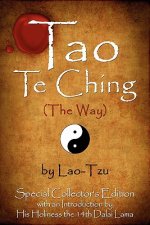
Tao Te Ching (The Way) by Lao-Tzu
25.39 €
Collection points Bratislava a 2642 dalších
Copyright ©2008-24 najlacnejsie-knihy.sk All rights reservedPrivacyCookies



 15549 collection points
15549 collection points Delivery 2.99 €
Delivery 2.99 € 02/210 210 99 (8-15.30h)
02/210 210 99 (8-15.30h)